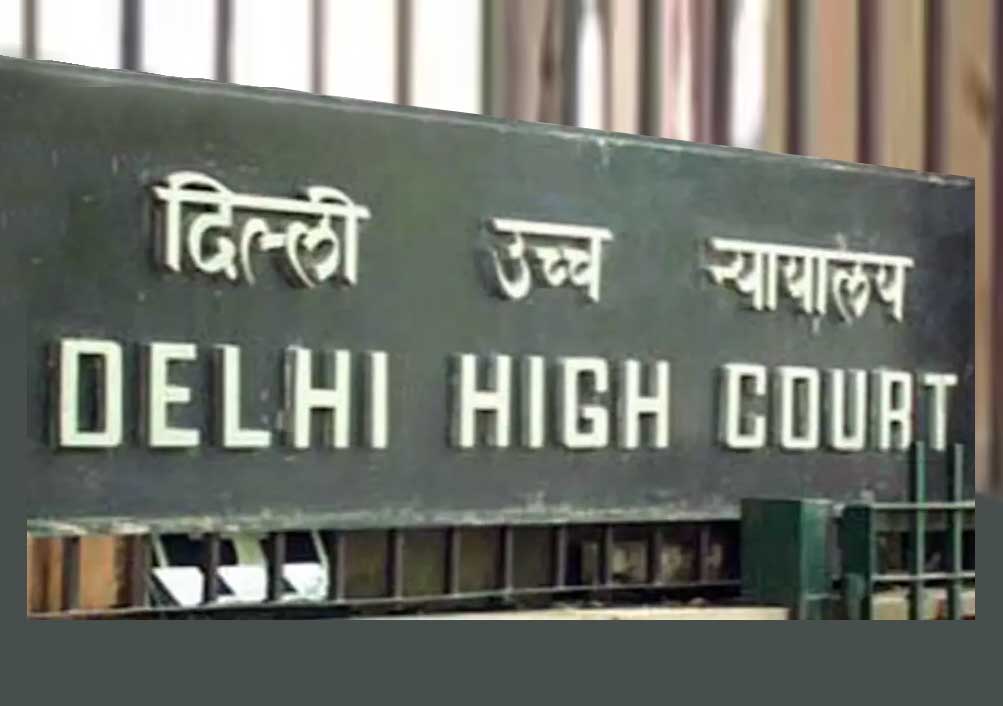In O.M.P.(I) (COMM.) 128/2023-DEL HC- Invocation of judicial review power in proceedings u/s 9 of Arbitration & Conciliation Act would fall foul of principle that issue relating to termination of contract must be determined by Arbitral Tribunal, says Delhi HC while upholding NHIDCL’s termination Notice
Justice Yashwant Varma [23-05-2023]

Tulip Kanth
New Delhi, May 24, 2023: The Delhi High Court has dismissed a petition seeking interim stay on the operation of the Termination Notice issued by first Respondent-National Highways & Infrastructure Development Corporation with respect to a Contract pertaining to the Construction of two-lane road in the State of Nagaland under NH(O) Plan.
“...the Court finds itself unable to hold or interpret Section 14(d) of the SRA to be confined only to those contracts where parties have the right to terminate without assigning any reason or where that power be exercisable even in the absence of an event or breach”, Justice Yashwant Varma held.
The dispute, in this case, emanated between the parties from a contract which was awarded to the petitioner in terms of a Letter of Acceptance for construction of two-lane with hard shoulder of Changtongya – Longleng Road on EPC basis in the State of Nagaland under NH (O) Plan. This work was to be accomplished at a contract price of Rs 128 crore. Interim measures and orders of injunction were sought in respect of a Termination Notice which came to be issued
The Contract Agreement was stated to have been executed between the petitioner and the respondents and consequent to the promulgation of the appointed date, the petitioner was obliged to complete the construction work by June 30, 2022. Thereafter a termination notice was issued by the National Highways & Infrastructure Development Corporation Ltd. (NHIDCL) which apart from being based on the project milestones having not been achieved also raised the issue of certain forged bank guarantees having been submitted.
Also, prior to the issuance of the Termination Notice, NHIDCL had also issued an Intent to Terminate Notice and aggrieved by the initiation of that action, the petitioner had approached the Court by way of a petition under Section 9 of the Arbitration and Conciliation Act, 1996.
Alongwith many reliefs, this petition in question had been filed mainly seeking an ad interim stay on the effect and operation of the Termination Notice issued by the first Respondent with respect to the Contract.
The Bench opined that the invocation of a judicial review power in proceedings under Section 9 would fall foul of the principles which were enunciated in Rajasthan Breweries Ltd. vs. The Stroh Brewery Company as well as in Cox and Kings India Limited v. Indian Railways Catering Tourism Corporation Limited, all of which had consistently held that the merits of a termination of a contract are issues which must be essentially left for determination by the Arbitral Tribunal.
It was observed that the Court was bound by the enunciation of the legal position as embodied in National Highways Authority of India v. Panipat Jalandhar NH-I Tollway Pvt. Ltd. which had explained the injunct embodied in Section 14(d) of the SRA to be applicable to all revocable or voidable contracts. Those decisions in unequivocal terms explained the extent of the statutory embargo enshrined in Section 14(d) of the SRA as extending to contracts which can be revoked in terms of the stipulations contained therein.
The Bench then stated that Section 14(d) speaks of contracts which by their nature are determinable as not liable to be specifically enforced. The High Court was unable to hold or interpret Section 14(d) of the SRA to be confined only to those contracts where parties have the right to terminate without assigning any reason or where that power be exercisable even in the absence of an event or breach. As per the Bench, the power to terminate, whether it be for cause or otherwise, based on an allegation of breach or the happening of an event, if preserved would lead to the Court recognising such a contract falling within the scope of Section 14(d) of the SRA.
It was also evident from the contents of the Termination Notice that NHIDCL had proceeded to terminate the contract based on the provisions of sub-clauses (d), (e), (f), (g), (p), (q),(n) and (o) of Clause 23.1 (i) and while sub-clauses (d), (e), (f), (g),(p),(q) and the nature of breaches contemplated therein may have been curable infractions, sub-clauses (n) and (o) couldnot possibly be understood to be breaches to which a cure period could apply.
On the issue of forged BG, the bench noted that the petitioner had sought to evade the liability that came to be attached consequent to the discovery of those BGs being forged by attributing that infraction to a Financial Consultant which had been engaged by it.
According to the Bench, explanation proffered appeared to be wholly specious. In any case bearing in mind the unequivocal findings of fact as contained in the Termination Notice coupled with the fact that those findings have not been established to be perverse, the Court was unconvinced that the impugned action of NHIDCL merited interference.
“However, these and all other contentions on merits which have been addressed by Mr. Mehta appearing for the petitioner are left open to be agitated in the arbitral proceedings”, the Bench held while dismissing the petition.
Sign up for our weekly newsletter to stay up to date on our product, events featured blog, special offer and all of the exciting things that take place here at Legitquest.




Add a Comment